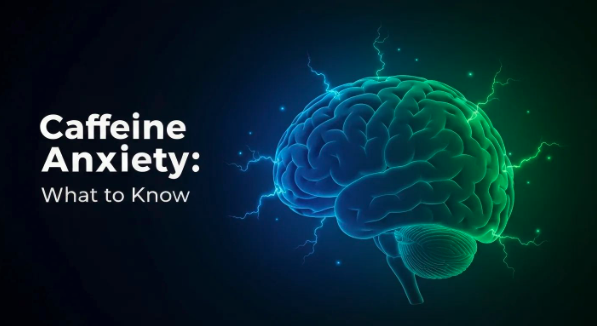The Power of Mindfulness for Mental Health
Discover the benefits of mindfulness for mental health. Reduce anxiety and depression through mindfulness practices.

The Benefits of Mindfulness
Delving into the realm of mindfulness unveils a plethora of advantages for mental health and overall well-being. Understanding the essence of mindfulness and its profound impact on stress management is key to harnessing its benefits.
Understanding Mindfulness
Mindfulness is a practice that encourages individuals to cultivate awareness of the present moment, fostering a deep connection with one's thoughts, actions, and bodily sensations. By being fully present in the now, individuals can observe their thoughts without judgment, thereby promoting clarity, focus, and emotional resilience. This heightened state of awareness allows for a greater sense of self-control and a more profound understanding of one's inner experiences.
Engaging in mindfulness practices empowers individuals to acknowledge and accept their thoughts and feelings without becoming overwhelmed by them. This non-reactive awareness enables individuals to respond to challenging situations with composure and equanimity, enhancing their capacity to navigate life's complexities with grace and resilience.
Impact on Stress Management
The transformative power of mindfulness on stress management cannot be understated. By immersing oneself in the present moment and cultivating a non-judgmental awareness of their experiences, individuals can effectively reduce stress levels and enhance their coping mechanisms in the face of adversity.
Studies have shown that mindfulness practices may help individuals better manage stress, cope with serious illnesses, and alleviate symptoms of anxiety and depression [1]. Embracing mindfulness has been linked to decreased anxiety and depression, allowing individuals to experience a sense of calm, improved mood, and enhanced emotional well-being.
Moreover, mindfulness meditation has been found to be particularly beneficial for individuals with clinical depression. Research has indicated that mindfulness-based interventions can lead to positive outcomes for depressed patients, with functional magnetic resonance imaging (fMRI) scans revealing notable changes in brain activity, especially in the amygdala, even outside of meditation sessions [2].
By integrating mindfulness into daily life, individuals can cultivate a sense of inner peace, resilience, and emotional balance, thereby enhancing their mental health and overall quality of life. Discovering the profound impact of mindfulness on stress management lays the foundation for a journey towards enhanced well-being and personal growth.
Mindfulness and Mental Health
In the realm of mental health, mindfulness practices have been recognized for their significant impact on reducing anxiety and depression and aiding individuals in coping with chronic illnesses.
Reducing Anxiety and Depression
Research has shown that incorporating mindfulness techniques into daily life can have a profound effect on reducing symptoms of anxiety and depression. By fostering a heightened awareness of the present moment and promoting acceptance of thoughts and feelings without judgment, individuals can better manage their mental well-being [1].
Through mindfulness practices, individuals learn to observe their thoughts and emotions without becoming entangled in them, fostering a sense of calm and mental clarity. This mindful awareness helps individuals break free from negative thought patterns and rumination, ultimately reducing feelings of anxiety and depression.
For individuals struggling with anxiety and depression, integrating mindfulness techniques into their daily routine can provide a valuable tool for managing their mental health and fostering emotional well-being. For further insights into the mental health spectrum, consider reading our article on understanding the mental health spectrum.
Coping with Chronic Illness
In addition to its benefits for anxiety and depression, mindfulness has also shown promise in helping individuals cope with chronic illnesses. By cultivating a non-judgmental awareness of their thoughts and physical sensations, individuals living with chronic conditions can navigate their healthcare journey with greater resilience and acceptance.
Mindfulness encourages individuals to pay attention to their thoughts, actions, and body, promoting self-compassion and helping individuals better manage the emotional toll of chronic illness. It empowers individuals to approach their health challenges with a sense of mindfulness and equanimity, fostering a more balanced and adaptive response to their condition.
For those grappling with chronic illnesses, incorporating mindfulness practices can provide a sense of control and agency in managing their well-being. To delve deeper into the impact of trauma on mental health, consider reading our article on the impact of trauma on mental health.
By embracing mindfulness as a tool for enhancing mental health, individuals can cultivate a greater sense of self-awareness, resilience, and emotional well-being. The practice of mindfulness offers a holistic approach to mental health, aiding individuals in navigating life's challenges with grace and compassion.
Mindfulness Practices
Incorporating mindfulness practices in daily life can significantly enhance mental well-being and overall quality of life. From simple techniques that can be woven seamlessly into daily routines to dedicated mindfulness meditation sessions, these practices offer various benefits for mental health and resilience.
Techniques for Daily Life
Mindfulness is a powerful tool recommended for managing common mental health issues such as stress, anxiety, and depression, as well as for enhancing mental well-being [3]. Here are some techniques for integrating mindfulness into your daily life:
- Focused Breathing: Take a few moments to focus on your breath, inhaling and exhaling slowly and deeply. This practice can help calm the mind and increase awareness of the present moment.
- Body Scan: Scan your body from head to toe, paying attention to any areas of tension or discomfort. This practice promotes physical relaxation and mindfulness of bodily sensations.
- Mindful Eating: Engage all your senses while eating, savoring each bite and being fully present during meals. This practice cultivates a deeper connection with your food and body.
- Gratitude Journaling: Take time each day to write down things you are grateful for. This practice promotes positivity and shifts focus towards appreciation.
By incorporating these mindfulness techniques into your daily routine, you can build resilience and improve your mental health over time. For more insights on enhancing mental well-being, check out our article on building resilience for improved mental health.
Incorporating Mindfulness Meditation
Mindfulness meditation is a formal practice that involves setting aside dedicated time for focused awareness and presence. It is a core component of mindfulness-based interventions like Mindfulness-Based Cognitive Therapy (MBCT) and Mindfulness-Based Stress Reduction (MBSR).
During mindfulness meditation, individuals are encouraged to observe their thoughts and emotions without judgment, allowing them to develop insight into their internal experiences. This practice can enhance attention and concentration, improve emotional regulation, and foster healthier relationships.
To get started with mindfulness meditation, find a quiet and comfortable space where you can sit or lie down without distractions. Focus on your breath or a specific sensation, gradually deepening your awareness of the present moment. There are various guided meditations and resources available to support your practice, helping you cultivate a greater sense of mindfulness and inner peace.
Incorporating mindfulness meditation into your routine can have profound effects on your mental health and well-being. For a deeper understanding of how mindfulness practices can positively impact different aspects of your life, explore our article on the importance of social connections for mental well-being.
Mindfulness in Treatment
When it comes to incorporating mindfulness into treatment, two prominent approaches are Mindfulness-Based Cognitive Therapy (MBCT) and Mindfulness-Based Stress Reduction (MBSR). These evidenced-based programs have shown promising results in enhancing mental health outcomes for individuals dealing with various challenges.
Mindfulness-Based Cognitive Therapy
Mindfulness-Based Cognitive Therapy (MBCT) was specifically developed to address the needs of individuals at risk for recurrent depression. Research, as cited by NCBI, indicates that MBCT has been successful in reducing relapse rates for individuals with three or more episodes of depression. However, it may not be as effective for those with a history of two or fewer episodes. Interestingly, individuals with a personal history of childhood trauma and abuse have been shown to benefit the most from MBCT, underscoring the differential responses to mindfulness interventions.
Moreover, MBCT has demonstrated effectiveness in reducing self-reported levels of anxiety, depression, and rumination, while improving overall psychological distress and quality of life. This therapy is not only beneficial for individuals with depression but has also shown positive outcomes for those experiencing symptoms of bipolar disorder, social phobia, and epilepsy.
To explore the full potential of MBCT, it's essential for individuals to actively engage in the practices and techniques recommended during therapy. Consistent participation in mindfulness exercises can lead to improved emotional well-being, increased self-compassion, and enhanced quality of life, both in clinical and non-clinical populations.
Mindfulness-Based Stress Reduction
In addition to MBCT, Mindfulness-Based Stress Reduction (MBSR) is another influential program that integrates mindfulness techniques to manage stress and enhance overall well-being. This approach, as highlighted by the Mental Health Foundation, is recommended for preventing relapse in recurrent depression and managing prolonged stress.
MBSR focuses on cultivating present-moment awareness and acceptance, allowing individuals to navigate challenges with a greater sense of clarity and equanimity. By incorporating mindfulness practices into daily routines, individuals can develop resilience, cope effectively with stressors, and promote both their mental and physical health.
Engaging in mindfulness practices such as meditation, body scans, and mindful movement can equip individuals with valuable tools to navigate the complexities of life and enhance their mental health. Through consistent participation in MBSR, individuals can cultivate a deeper understanding of themselves, foster self-compassion, and build a solid foundation for improved mental well-being.
Controversies and Considerations
When exploring the realm of mindfulness for mental health, it is essential to acknowledge the potential controversies and considerations surrounding its practice. This section delves into the potential adverse effects of mindfulness and the importance of regulation and oversight in its implementation.
Potential Adverse Effects
While mindfulness meditation is praised for its positive impacts on mental health, it is crucial to recognize that it may not be suitable for everyone. Evidence suggests that mindfulness meditation may lead to adverse effects, including increased anxiety, depression, and in severe cases, even full-blown psychosis in some individuals [5].
It is imperative to approach mindfulness practice with caution, especially for individuals with pre-existing mental health conditions. Understanding individual needs and responses to mindfulness is key to mitigating any potential adverse effects and promoting a safe and effective practice.
Regulation and Oversight
The lack of formal regulation required to teach mindfulness-based interventions, such as Mindfulness-Based Stress Reduction (MBSR) and Mindfulness-Based Cognitive Therapy (MBCT), raises significant concerns regarding the qualifications and experience of teachers. This lack of oversight may inadvertently put individuals with mental health difficulties at risk [5].
Preventing harm in mindfulness-based interventions is a primary ethical duty in health-related professions. Therefore, it is crucial to conduct systematic studies on the potential for harm in mindfulness practices. By studying the harmful outcomes, we can develop improved treatment methods and ensure the safety and efficacy of mindfulness interventions.
To uphold the integrity and effectiveness of mindfulness as a tool for mental health, establishing rigorous regulations and oversight mechanisms for mindfulness teachers is paramount. This will not only safeguard individuals seeking mental health support but also foster trust in the practice of mindfulness as a therapeutic intervention.
By addressing the potential adverse effects of mindfulness and advocating for robust regulation and oversight, we can enhance the safety and quality of mindfulness-based interventions for mental health and promote a more mindful approach to well-being.
Research and Effectiveness
In the realm of mindfulness for mental health, scientific research plays a pivotal role in understanding its benefits and impact on psychological well-being. Let's delve into the scientific studies on mindfulness and explore the positive effects it has on enhancing mental health.
Scientific Studies on Mindfulness
Studies have shown that mindfulness meditation is a powerful tool for reducing stress levels and improving various aspects of mental health. Research conducted by Mindful revealed that individuals undergoing a mindfulness training program for six weeks experienced notable enhancements in well-being compared to those in a sleep hygiene education program. This suggests that mindfulness practices can effectively contribute to stress management and overall mental wellness.
Empirically supported mindfulness-based programs (MBPs), such as Mindfulness-Based Stress Reduction (MBSR) and Mindfulness-Based Cognitive Therapy (MBCT), have demonstrated significant benefits across a wide range of outcomes. According to NCBI, these programs have been found to positively impact psychological disorders, stress management, coping with illnesses and pain, mood regulation, attention span, memory, and even physiological factors like blood pressure and immune function.
Benefits for Psychological Well-being
Mindfulness-Based Stress Reduction (MBSR) has been particularly effective in reducing self-reported levels of anxiety, depression, anger, and perceived stress. Studies have shown that participation in MBSR is associated with an increase in positive affect, mindfulness, self-compassion, and overall quality of life, benefiting both clinical and non-clinical populations.
Moreover, Mindfulness-Based Cognitive Therapy (MBCT) has proven successful in reducing relapse rates among individuals with recurring episodes of depression. It has also shown positive results in enhancing residual depressive symptoms, improving quality of life among remitted depressed patients, and treating conditions like bipolar disorder and social phobia.
Research on mindfulness-based meditation has gained significant traction, with numerous randomized controlled trials showcasing its efficacy in managing conditions such as anxiety, depression, post-traumatic stress disorder, and chronic pain. Studies also highlight the moderate yet impactful effects of mindfulness on various psychological conditions, positioning it as a valuable therapeutic approach alongside traditional treatments [2].
By illuminating the scientific evidence supporting the effectiveness of mindfulness in promoting psychological well-being, individuals can gain a deeper understanding of the tangible benefits this practice offers for enhancing mental health and overall quality of life.
References
More Resources
A team ready to start your journey.
Get in touch — today.
We are a safe space – a haven for exceptional individuals to receive discreet, personalized, in-person treatment and care.
.avif)

.webp)








